New UN websites & publications
UN in General
SDG Stimulus Leaders Group
https://www.un.org/en/sdg-stimulus
The SDG Stimulus Leaders Group is convened by the UN Secretary-General to advocate at the highest level for equipping developing countries with the financial resources they require to invest in the SDGs. The membership of the Leaders Group includes Heads of State and Government of Barbados, Brazil, Canada (co-chair), France, India, Italy, Jamaica (co-chair), Kenya, South Africa, and Spain. The first meeting took place on 5 June 2024.
see also: https://www.un.org/sg/en/content/sg/personnel-appointments/2024-06-05/sdg-stimulus-leaders-group

Pact for the Future First Revision
https://www.un.org/sites/un2.un.org/files/sotf-pact-for-the-future-rev.1.pdf
Letter from the Co-Facilitators with the Roadmap
https://www.un.org/sites/un2.un.org/files/sotf-co-facs-letter-rev.1-circulation.pdf
Long-term impacts of current trends on the realization of the Sustainable Development Goals: Report of the Secretary-General (E/2024/55, 3 May 2024)
English, French & Spanish: https://undocs.org/E/2024/55
“Summary: The world continues to face multiple and interlinked challenges that affect the capacity of States to accelerate the action towards achieving the Sustainable Development Goals that was pledged by world leaders in the political declaration adopted at the 2023 Sustainable Development Goals Summit. The present report concerns five major, interconnected and mutually reinforcing current trends and their potential long-term impacts on the future realization of the 2030 Agenda for Sustainable Development and the achievement of the Sustainable Development Goals, namely: the impact of geopolitical tensio ns on the global economy; changing labour markets; rapid technological change; continuing and intensifying adverse impacts of climate change; and the evolving nature of social contracts. While certain aspects of those trends can yield constructive outcomes, there are also negative impacts with the potential to hinder and reverse progress across the Goals, which would be faced predominantly by vulnerable countries and communities. Tangible and holistic responses are needed at all levels. In order to eradicate poverty and achieve the Goals, priority needs to be given to policies aimed at revitalizing inclusive, sustained and sustainable economic growth and reversing geoeconomic fragmentation. Policy approaches need to be adaptable to rapidly changing labour markets and the increased digitalization of those markets and need to include measures aimed at promoting skills training while addressing unfavourable labour outcomes. Facilitating access to new technologies will advance efforts to achieve of the Goals and bridge technology divides. The integration of climate adaptation, mitigation and broader sustainable development efforts into all Goals will enable a just transition. Revitalized social contracts can be instrumental in providing expanded and effective social protection, enhancing social inclusion and deepening a sense of trust and intergenerational solidarity.”
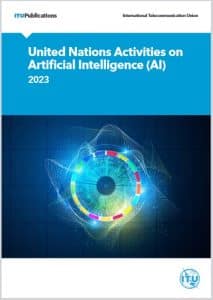
https://www.itu.int/hub/publication/s-gen-unact-2023/
The most recent edition of the “UN Activities on AI Report” represents a collaborative endeavor between the International Telecommunication Union (ITU) and 46 United Nations agencies and bodies. This comprehensive report showcases 408 artificial intelligence (AI) cases and projects run by the UN system, encompassing all 17 Sustainable Development Goals (SDGs). The initiatives range from forecasting food crises and monitoring water productivity to mapping schools through satellite imagery and optimizing the performance of communication networks, among other applications.
UNHCR archive offers insights and inspiration in addressing forced displacement (News Story, 7 June 2024)
A unique and immense trove of carefully stored materials reveals the history of the UN Refugee Agency and the stories of the people it serves.
English: https://www.unhcr.org/news/stories/unhcr-archive-offers-insights-and-inspiration-addressing-forced-displacement
French: https://www.acnur.org/noticias/historias/el-archivo-de-acnur-ofrece-ideas-e-inspiracion-para-abordar-el-desplazamiento
Economic Growth and Sustainable Development

Action on salt and hypertension: reducing cardiovascular disease burden in the WHO European Region
https://iris.who.int/handle/10665/376580
Most people in the WHO European Region consume far too much salt, and more than one in three adults aged 30–79 has hypertension, the medical term for high blood pressure. This matters because high salt intake raises blood pressure, which is a leading risk factor for cardiovascular diseases such as heart attacks and strokes. This new WHO/Europe report calls for an integrated approach to reduce salt intake and improve detection and control of hypertension to protect people’s health.
Adolescents in a changing world: the case for urgent investment (UNFPA / UNICEF / WHO)
https://www.unfpa.org/publications/adolescents-changing-world-case-urgent-investment
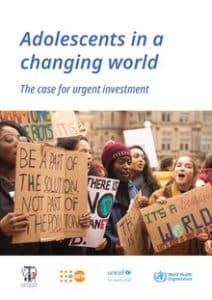
Arts for transformative education: a guide for teachers from the UNESCO Associated Schools Network
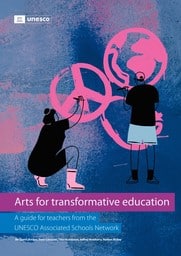
This new UNESCO publication was officially launched during the 5th World Cultural Heritage Youth Symposium, on 17-21 April 2024. The guide invites teachers to harness the transformative power of the arts through a research-informed Arts for Transformative Education model. This thinking tool for teachers was developed by analyzing data from more than 600 teachers from ASPnet schools across 39 countries. It is co-published by UNESCO and the Canadian National Commission of UNESCO, in collaboration with the UNESCO Chair in Arts and Learning, Dr. Benjamin Bolden of Queen’s University, Canada. It is expected to help implementing the UNESCO’s new Framework on Culture and Arts Education, adopted at the World Conference on Culture and Arts Education from 13 to 15 February 2024 in Abu Dhabi.
Child Food Poverty: A Nutrition Crisis in Early Childhood – 2024 I Child Nutrition Report (UNICEF)
Report in English, Brief in English, French, Spanish & Portuguese:
https://www.unicef.org/child-health-and-survival/child-food-poverty
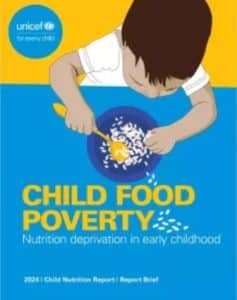
Climate Change in Regional Perspective – European Union and Latin American Initiatives, Challenges, and Solutions (UNU-CRIS)
https://cris.unu.edu/climate-change-regional-perspective-european-union-and-latin-american-initiatives-challenges-and
This Open Access book addresses climate change in Europe and Latin America from a comparative regionalism studies (CRS) perspective. Written by an international team of scholars and experts, chapters critically analyze proposals for mitigating climate change while contributing to the mutual understanding about the issues at stake across regions. The book is divided into three main sections. In the first section, authors discuss EU and Latin American cooperation, negotiations, and perspectives on climate change, exploring their agendas, the interests and key challenges at the global, regional and interregional levels. The second section focuses on the challenges to finance development and a greener economy. The third section explores new green solutions to climate change in the agriculture sector and initiatives such as nature-based solutions to climate change and best practices. Providing policy oriented solutions for combatting regional climate change at a critical juncture, this volume will be of interest to researchers and students of international relations, international law, and environmental politics, as well as public officials and climate change activists.

https://www.worldbank.org/en/region/eca/brief/economics-for-disaster-prevention-preparedness-europe
Europe faces overwhelming losses and destruction from climate-related disasters as the continent is warming faster than any other region in the world. Given overlapping priorities and limited funds, focused and smart investments are needed to strengthen and adapt critical sectors across Europe to disaster and climate risks. New research from the World Bank and European Commission offers evidence and tools to help countries take a more strategic approach to boost their climate resilience.
The Energy Security Gains from Strengthening Europe’s Climate Action (IMF Departmental Paper No 2024/005)
https://www.imf.org/en/Publications/Departmental-Papers-Policy-Papers/Issues/2024/05/17/The-Energy-Security-Gains-from-Strengthening-Europes-Climate-Action-544924
Following the 2022 energy crisis, this paper investigates whether Europe’s ongoing efforts to cut greenhouse gas emissions can also enhance its energy security. The global computational general equilibrium model analysis finds that individual policy tools, including carbon pricing, energy efficiency standards, and accelerated permitting procedures for renewables, tend to improve energy security. Compared to carbon pricing, sector-specific regulations deliver larger energy security gains and spread those more evenly across countries, benefitting also some fossil-fuel-intensive economies in Central and Eastern Europe. This finding strengthens the case for a broad climate policy package, which can both achieve Europe’s emissions-reduction goals and deliver sizeable energy security co-benefits. An illustrative package, which would cut emissions in the EU, UK, and EFTA by 55 percent with respect to 1990 levels by 2030, is estimated to improve the two energy security metrics used in this paper by close to 8 percent already by 2030. Beyond the policies analyzed in the model, the paper also discusses the technology, market design, and supply chain reforms that Europe needs for an energy-secure green transition.
Financing Gap for Universal Social Protection: Global, regional and national estimates and strategies for creating fiscal space (ILO)
https://www.ilo.org/publications/financing-gap-universal-social-protection-global-regional-and-national
Governments of low- and middle-income countries will need to increase spending to ensure universal social protection by an estimated additional US$1.4 trillion if they are to provide basic social protection for all, according to this new working paper by the International Labour Organization (ILO).
A focus on adolescent physical activity, eating behaviours, weight status and body image in Europe, central Asia and Canada: Health Behaviour in School-aged Children international report from the 2021/2022 survey (WHO/Europe)
https://www.who.int/europe/publications/i/item/9789289061056
This new report, released by WHO/Europe on 23 May 2024, reveals alarming disparities in the health of young people across the WHO European Region, with those from less affluent families disproportionately affected. The report, based on data from 44 countries participating in the Health Behaviour in School-aged Children (HBSC) study, highlights unhealthy eating habits, rising rates of overweight and obesity, and low levels of physical activity among young people, all of which are significant risk factors for a range of noncommunicable diseases including cardiovascular diseases, diabetes and cancer.
Global Land Outlook: Thematic Report on Rangelands and Pastoralists (UNCCD)
Report: https://www.unccd.int/resources/global-land-outlook/glo-rangelands-report
Executive Summary: https://www.unccd.int/resources/publications/glo-rangelands-executive-summary

Handbook on the Least Developed Country Category: Inclusion, Graduation and Special Support Measures – Fifth Edition (DESA)
https://www.un.org/development/desa/dpad/publication/handbook-on-the-least-developed-country-category-inclusion-graduation-and-special-support-measures-fifth-edition/

HIV/AIDS Inequality Visualization Platform
https://aidsinfo.unaids.org/inequalities
Tackling inequalities is how the world will end AIDS, so it is vital to know what type of inequalities exist in each country and how are they affecting the national AIDS responses. That is what a new UNAIDS inequalities visualization tool is set out to measure. The new tool will allow countries, development partners, civil society, academia, and advocates to see and measure the effects that different dimensions of inequalities have on the HIV response.
Hooking the next generation: how the tobacco industry captures young customers
https://www.who.int/publications/i/item/9789240094642


https://tinyurl.com/yc32ryem
The World Bank has issued its latest update on The Impact of the Conflict in the Middle East on the Palestinian Economy. The report draws on the latest available data and analysis to assess the ongoing impact of the conflict to the Palestinian economy. It finds that the fiscal situation of the Palestinian Authority has dramatically worsened in the last three months, significantly raising the risk of a fiscal collapse. Revenue streams have largely dried up due to the drastic reduction in clearance revenue transfers payable to the Palestinian Authority and a massive drop in economic activity. The rapidly widening gap between the amount of revenues coming in, and the amount needed to finance essential public expenditure, is driving a fiscal crisis.
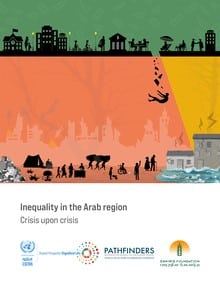
https://www.unescwa.org/publications/inequality-arab-region-crisis
In recent years, the Arab region has experienced a string of successive, overlapping and reinforcing crises, known as a polycrisis. Environmental, economic, institutional and conflict-related crises have interacted with each other to a devastating degree, resulting in detrimental effects on people’s access to social and economic services and opportunities. Not everyone, however, has been affected equally. Those who were already at risk of being left behind find themselves further behind their peers, as crises have accentuated inequality in all its forms and eroded the potential of social mobility. This third edition of the Arab Inequality Report presents the growing risk of polycrisis in the Arab region since 2015. It introduces a novel way to capture inequality in all its forms, through a new multidimensional inequality framework. It also highlights the positive correlation between multidimensional inequality and the risk of polycrisis. Yet, polycrises and high multidimensional inequality are not inevitable. The report concludes with concrete and practical policy recommendations for countries to protect equality in times of crisis. In particular, the report calls for immediate humanitarian assistance in the face of crises, without political implications, and innovative financing mechanisms that enable more vulnerable countries to pursue sustainable socio-economic development and leave no one behind.
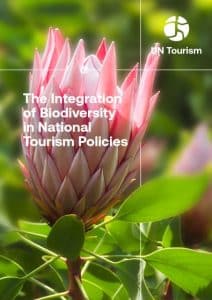
https://www.e-unwto.org/doi/10.18111/9789284424900
Published on International Day of Biodiversity, the report “The Integration of Biodiversity in National Tourism Policies”, explores the intricate relationship between the tourism sector and biodiversity, which encompasses the diversity within species, between species and of ecosystems. It assesses how 80 national tourism policies incorporate biodiversity values and aims to deepen the understanding of the references to biodiversity within these policies. The report comprises four detailed subsections that examine the integration of biodiversity within policy narratives, policy statements, strategic programs, and commitments to monitoring. By providing insights into the breadth and depth of current integration efforts, it serves as a valuable resource for policymakers, stakeholders, and the global community, urging further action towards a sustainable future.
Navigating Towards a Nature-Positive Future: Strategic Uptake of Evidence Towards Tangible Biodiversity Solutions (UNDP)
https://www.undp.org/publications/navigating-towards-nature-positive-future-strategic-uptake-evidence-towards-tangible-biodiversity-solutions

Progress on drinking water, sanitation and hygiene in schools 2015-2023: Special focus on menstrual health
https://data.unicef.org/resources/jmp-wash-in-schools-2024/
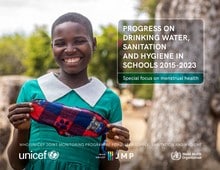
SDG Push: Unlocking New Pathways to SDG Acceleration (UNDP)
https://www.undp.org/publications/sdg-push-unlocking-new-pathways-sdg-acceleration

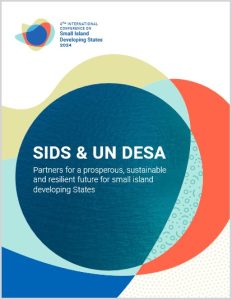
https://desapublications.un.org/sites/default/files/2024-05/DESA-SIDS4-brochure.pdf
Ahead of the SIDS4 Conference, UN DESA issued this new brochure outlining the Department’s support and partnerships with SIDS. The brochure presents a range of DESA initiatives tailored to their and workstreams addressing SIDS’ unique sustainable development challenges, spanning the Department’s six priority action areas.
Safeguarding the right to adequate food during pandemics and emergencies: lessons from COVID-19 (IDLO/FAO)
https://www.idlo.int/publications/safeguarding-right-adequate-food-during-pandemics-and-emergencies-lessons-covid-19
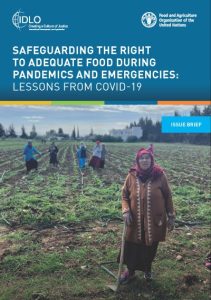

https://www.ioc.unesco.org/en/stor2024
The State of the Ocean Report has the ambition to inform policymakers about the state of the ocean and to stimulate research and policy actions towards ‘the ocean we need for the future we want’, contributing to the 2030 Agenda and in particular SDG 14, as well as other global processes such as the UNFCCC, the Convention on Biological Diversity and the Sendai Framework for Disaster Risk Reduction. Structured around the seven UN Decade of Ocean Science for Sustainable Development Outcomes, the Report provides important information about the achievement of the UN Ocean Decade objectives and, in the longer term, about ocean well-being. More than 100 authors from 28 countries contributed to the Report. The different sections provide insights on ocean-related scientific activities and analyses describing the current and future state of the ocean, addressing physical, chemical, ecological, socio-economic and governance aspects.
The State of World Fisheries and Aquaculture 2024: Blue Transformation in action (FAO)
Interactive story: https://www.fao.org/interactive/state-of-fisheries-aquaculture/en/
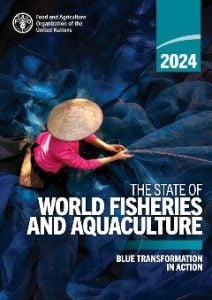
Summary in French: https://doi.org/10.4060/cd0690fr
Summary in Spanish: https://doi.org/10.4060/cd0690es
This edition features the Blue Transformation in action, illustrated by activities and initiatives, led by FAO in collaboration with Members, partners and key stakeholders, to integrate aquatic foods into global food security and sustainability, enhance policy advocacy, scientific research and capacity building, disseminate sustainable practices and technological innovations, and support community involvement. The report provides the most up-to-date and evidence-based information, supporting policy, scientific and technical insights on challenges, opportunities and innovations shaping the present and future of the sector, for the benefit of a wide and expanding audience of policymakers, managers, scientists, fishers, farmers, traders, civil society activists and consumers.
UN DESA Policy Brief No. 159: Demographic Outlook for the Small Island Developing States: Implications of Population Trends for Building Resilience and Prosperity across SIDS
https://desapublications.un.org/policy-briefs/un-desa-policy-brief-no-159-demographic-outlook-small-island-developing-states
SIDS have small populations, limited resources and are highly vulnerable to the impacts of climate change. Understanding their demographic outlook will help them to address these unique challenges.
UNU Global AI Network
https://aimacau-2024.org/unu-ai-network/
The United Nations University Global Artificial Intelligence Network (UNU Global AI Network) is officially launched at the UNU Macau AI Conference 2024. The Network aims to address the multifaceted challenges posed by AI on a global scale. The UNU Global AI Network represents a collaborative initiative spearheaded by the UNU and its partners. This network is envisioned as a comprehensive global platform, uniting the expertise of academia, the innovation of the private sector, the foresight of policymakers, and the grassroots engagement of civil society.

https://unhabitat.org/urban-content-of-ndcs-local-climate-action-explored-through-in-depth-country-analyses-2024-report


https://library.wmo.int/records/item/68910-wmo-global-annual-to-decadal-climate-update
There is an 80 percent likelihood that the annual average global temperature will temporarily exceed 1.5°C above pre-industrial levels for at least one of the next five years, according to this new report from the World Meteorological Organization (WMO), released on 5 June 2024. This is a stark warning that we are getting ever closer to the goals set in the Paris Agreement on climate change, which refers to long-term temperature increases over decades, not over one to five years.
Water for Shared Prosperity (World Bank)
https://www.worldbank.org/en/publication/water-for-shared-prosperity
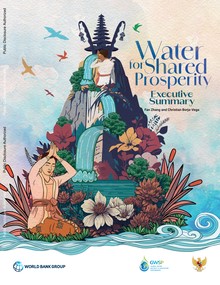
World Economic Situation and Prospects as of mid-2024 (DESA)
https://desapublications.un.org/publications/world-economic-situation-and-prospects-mid-2024

International Peace and Security
Aide mémoire for the Security Council open debate on the theme “Protection of civilians in armed conflict: twenty-fifth anniversary of Security Council resolution 1265 (1999)”
English, French & Spanish: https://undocs.org/S/2024/359
Mozambique, in its capacity as President of the Security Council for the month of May 2024, will hold an open debate on the theme “Protection of civilians in armed conflict: twenty -fifth anniversary of Security Council resolution 1265 (1999)” on 21 May 2024. In order to guide the discussions, Mozambique has prepared this aide mémoire.
Gaza war: Expected socioeconomic impacts on the State of Palestine – Update (May 2024)
https://www.unescwa.org/publications/gaza-war-socioeconomic-impacts-palestine
The joint Economic and Social Commission for Western Asia (ESCWA) and United Nations Development Programme (UNDP) report issued in November 2023 showed that the ongoing Gaza war has had a devastating impact on the Palestinian people, their economy and human development in the occupied Palestinian territory. The analysis in this present report provides an update of the significant macroeconomic and social consequences of the war based on four projected scenarios: the war ending after six months; continuing for one additional month; continuing for two additional months; and continuing for three additional months. The analysis underscores once again the urgent need for a ceasefire and sustained efforts to address the humanitarian crisis and rebuild the Palestinian economy and infrastructure.
Youth, Peace and Security: Fostering Youth-Inclusive Political Processes (UNDP)
https://www.undp.org/publications/youth-peace-and-security-fostering-youth-inclusive-political-processes

Human Rights
Hate Speech and Incitement to Hatred in the Electoral Context (OHCHR Information Note)
https://www.ohchr.org/en/documents/tools-and-resources/hate-speech-and-incitement-hatred-electoral-context
The present information note seeks to provide users with guidance on a wide range of issues posed by hate speech and incitement to hatred in the context of elections. The note first seeks to provide guidance on differentiating between lawful speech, hate speech and incitement to hatred. It then examines issues of common targets of hate speech in the electoral context, mechanisms for addressing hate speech in the electoral context, the role of political leadership, the risks of regulating hate speech in the electoral context, and finally restrictions on the right to freedom of expression in the electoral context with regards to hate speech and incitement to hatred.
Human rights and the draft Cybercrime Convention (OHCHR Information Note)
https://www.ohchr.org/sites/default/files/2024-05/Human-Rights-Draft-Cybercrime-Convention.pdf
OHCHR supports the drafting of a Comprehensive International Convention on Countering the Use of Information and Communication Technologies for Criminal Purposes (Convention) and encourages States to agree a text that complies fully with international law, including international human rights law. By firmly grounding the new Convention in existing international law, the Convention will effectively contribute to addressing cybercrime in accordance with the principles of legality, due process and the rule of law. A failure to do so would not only undermine efforts to address cybercrime but also contribute to an environment that enables it. This information note identifies key human rights messages for treaty drafters, civil society organizations and other stakeholders based on the further revised draft text of the Convention of February 2024. In focusing on key messages, the briefer does not exclude stronger human rights-related provisions that Member States and other stakeholders might propose. It should be noted that each of the areas highlighted below raises specific concerns from the perspective of international human rights law, each warranting close and separate consideration. In this regard, OHCHR cautions against compromise positions that might concede a lower standard in some of these areas as part of a broader package.
International Solidarity Basics: Revised draft declaration on the right to international solidarity / Cecilia M. Bailliet, UN Independent Expert on Human Rights and International Solidarity
https://www.ohchr.org/en/documents/tools-and-resources/international-solidarity-basics
Protection of the dead: Report of the Special Rapporteur on extrajudicial, summary or arbitrary executions, Morris Tidball-Binz (A/HRC/56/56, 25 April 2024)
English, French & Spanish: https://undocs.org/A/HRC/56/56
In the present report, the Special Rapporteur on extrajudicial, summary or arbitrary executions, Morris Tidball-Binz, examines, from a human rights perspective, the obligations to protect and respect the dead. He recommends the development of human rights-based guiding principles for the protection of the dead to bridge the gap between different levels of protections for dead persons under international law.

https://www.ohchr.org/en/documents/tools-and-resources/updated-child-friendly-booklet-mandate-and-how-connect-united-nations
This is an updated version of the child-friendly booklet on the mandate and how to connect with the United Nations Special Rapporteur on the sale, sexual exploitation and sexual abuse of children.
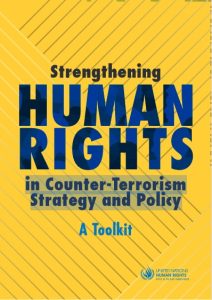
https://www.ohchr.org/sites/default/files/documents/issues/terrorism/ohchr-toolkit-strengthening-hr-in-ct-strategy-policy.pdf
The toolkit is aimed at providing support to Member States and stakeholders in the integration of human rights in counter-terrorism strategy and policy. It centres on three separate but interrelated areas:
Tool 1 – Integrating human rights into the content of a counter-terrorism strategy and policy;
Tool 2 – Building institutional human rights specialist capacity in counter-terrorism; and
Tool 3 – Strengthening government engagement with civil society in counter-terrorism.
Humanitarian Affairs
From Place to Place: Community Perception of Displacement and Durable Solutions in Ukraine; May 2024 (IOM)
https://dtm.iom.int/reports/ukraine-research-report-place-place-community-perception-displacement-and-durable-solutions

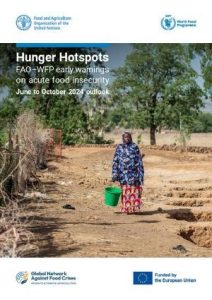
https://doi.org/10.4060/cd0979en
Acute food insecurity is set to increase in magnitude and severity in 18 hunger “Hotspots”, this new report has revealed on 5 June 2024. The report spotlights the urgent need of assistance to prevent famine in Gaza and the Sudan, and further deterioration in the devastating hunger crises in Haiti, Mali, and South Sudan. It also warns of the lingering impact of El Niño and the looming threat of La Niña that risks bringing further climate extremes that could upend lives and livelihoods. The report found that many hotspots face growing hunger crises and highlights the worrying multiplier effect that simultaneous and overlapping shocks are having on acute food insecurity. Conflict, climate extremes, and economic shocks continue to drive vulnerable households into food crises. Furthermore, the report warns that 2023 is likely to mark the first year since 2010 in which humanitarian funding has declined compared to the previous year, but it still represents the second highest funding level ever for humanitarian assistance.
Impact of the war in Gaza on the labour market and livelihoods in the Occupied Palestinian Territory: Bulletin No. 4
https://www.ilo.org/publications/impact-war-gaza-labour-market-and-livelihoods-occupied-palestinian-0
Eight months of war in the Gaza Strip have caused loss of jobs and livelihoods on a massive scale and a sharp decline in GDP in the Occupied Palestinian Territory (OPT), this new brief by the ILO and the Palestinian Central Bureau of Statistics (PCBS) reports. Since hostilities erupted in October 2023, the unemployment rate in the Gaza Strip has reached a staggering 79.1 per cent. In the West Bank, which has also been severely impacted by the crisis, unemployment has reached 32 per cent. These figures bring the average rate of unemployment to 50.8 per cent across the two areas of the OPT. Unemployment rates and figures, however, do not account for those who have left the labour force altogether as job prospects proved unattainable. The actual number of those who have lost their jobs is therefore even higher than what the unemployment figures suggest. Additionally, real GDP has contracted by an astounding 83.5 per cent in the Gaza Strip and by 22.7 in the West Bank over the past eight months, and real GDP of the entire OPT has shrunk by an average of 32.8 per cent. The new findings are presented in the fourth of a series of bulletins outlining the impact of the war in Gaza on the labour market and on livelihoods in the OPT.

English, French & Spanish: https://www.unicef.org/reports/front-line
Who can reach children in the most isolated and deprived communities? Who can reassure parents that immunization will save their child’s life? Who can help pregnant women and new mothers get the nutrition they need to raise healthy children? Who can help strengthen countries’ health systems, so that they will be better prepared to face the next pandemic or the aftermath of the next natural disaster? The answer to all these questions is community health workers. They are front-line health-care workers – mostly women – who are trained to deliver vital health and nutrition services to women and children in their communities, such as vaccination and screening children for severe malnutrition (wasting). This is a UNICEF advocacy brief that looks at the vital role that these workers play in reducing child and maternal mortality. It explores some of the challenges they face, and it makes the case for stronger investments in community health. It concludes with recommendations on specific areas that UNICEF and partners can prioritise in terms of advocacy, to improve conditions for these workers, and ultimately reduce maternal and child mortality.
Safe Pathways for Refugees IV: OECD-UNHCR study on pathways used by refugees linked to family reunification, study programmes and labour mobility between 2010 and 2022
https://globalcompactrefugees.org/about-gcr/resources/reports/oecd-unhcr-safe-pathways-refugees-iv
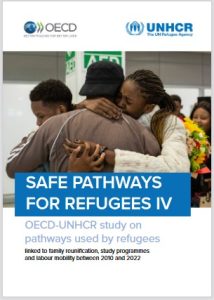
Supporting displaced adolescent boys and male youth in all their diversity who are survivors or at risk of sexual exploitation: A toolkit for frontline workers in humanitarian contexts (UN Women / WRC)
https://tinyurl.com/3nh49d8v
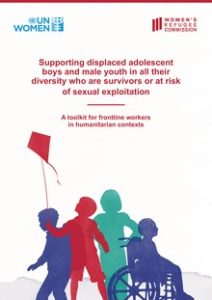
UNHCR Projected Global Resettlement Needs 2025
https://www.unhcr.org/media/projected-global-resettlement-needs-2025

Justice and International Law
A Prosecutor’s Guide to Radiological and Nuclear Crimes (UNICRI)
https://unicri.it/index.php/Publications/Prosecutor-Guide-Radiological-Nuclear-Crimes
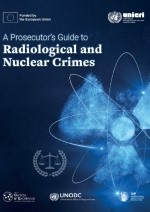
Drug Control, Crime Prevention and Counter-terrorism
Global Analysis on Crimes that affect the Environment: Part 1, The Landscape of Criminalization (UNODC)
https://www.unodc.org/unodc/data-and-analysis/the-landscape-of-criminalization.html
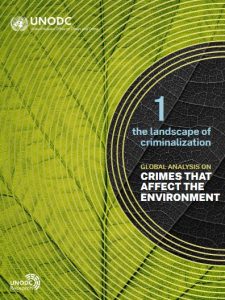
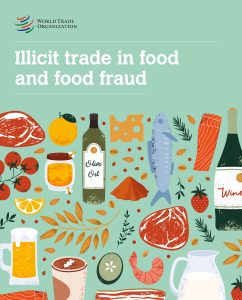
https://www.wto.org/english/res_e/publications_e/itfff_e.htm
A new WTO publication launched on 28 May looks into the challenges of combating illicit trade in food and food fraud and discusses the role the WTO could play in helping to address this issue. At the launch event, leaders from business and international organizations and other trade experts discussed the urgent need for the international community to act collectively and explored strategies for overcoming current challenges.
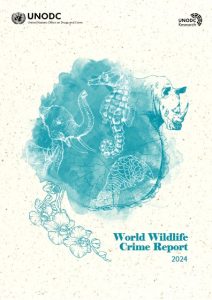
https://www.unodc.org/unodc/en/data-and-analysis/wildlife.html
The UN Office on Drugs and Crime’s (UNODC) new World Wildlife Crime Report finds that – despite positive signs in reducing trafficking impacts for some iconic species like elephants and rhinoceros – wildlife trafficking overall has not been substantially reduced over two decades. More consistent enforcement to tackle both supply and demand, effective implementation of legislation, including anti-corruption laws, and stronger monitoring and research are needed. The third edition of the World Wildlife Crime Report examines trends, harms, impacts and drivers of the trafficking of protected wildlife species; evaluates the effectiveness of interventions to combat the trade; and provides policy recommendations.
Newsletter Archive: https://unric.org/en/unric-info-point-library-newsletter-archive
